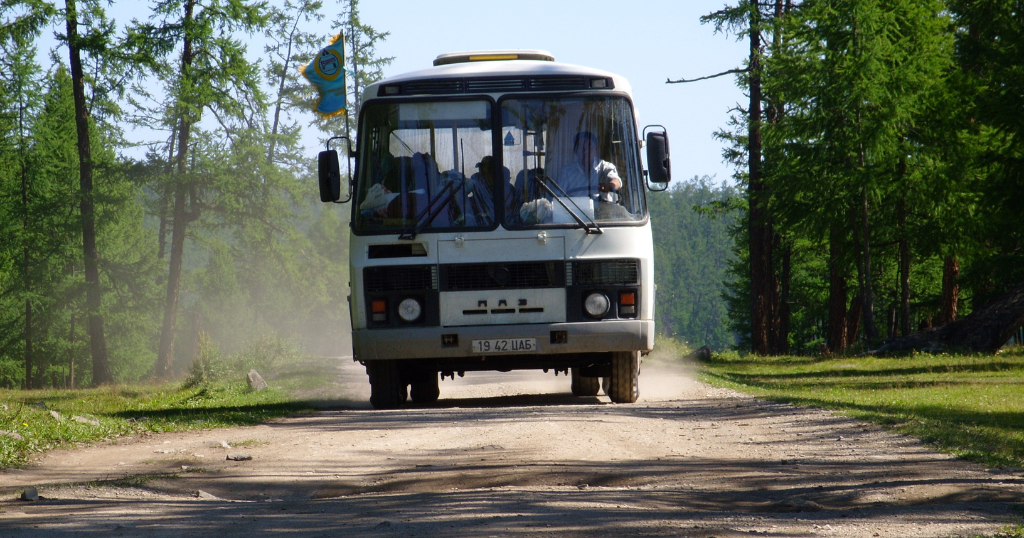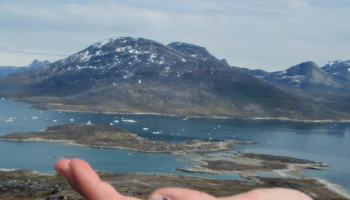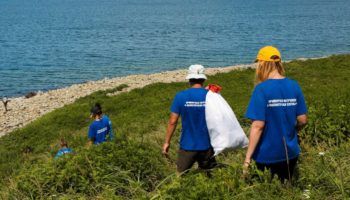Here it is, the moment we’ve all been waiting for… sunshine, warm days and nights, nature at its best – summer! So maybe you’re about to head off on your workcamp, project or other summer adventure.
And as much as this means carefree days full of adventure, we must remember that in all our travels we are only visitors and should try to leave the place as we arrived, respecting the natural and cultural sites in the area. This may sound like an exaggerated metaphor, but the same is true for staying on our beautiful Earth. Let’s all do what we can to make our travels as uncomfortable as possible. Every small step towards sustainability counts!
Time to plan
How will you travel?
It’s a good idea to think economically when planning your trip. Of course, your choice of transport will depend on your destination.
1. The train, your best friend
Not only is it the most environmentally friendly form of public transport, it’s also comfortable, safe and, unlike the bus, you won’t be stuck on the motorway and can enjoy the views. There are hundreds of breathtaking train routes around the world, offering not only stunning scenery but also a unique experience. The ideal brand.
2. Car sharing
Even travelling by car can be greener if it makes more sense for you. If you’re driving yourself, try offering other travellers a free seat on the BlaBlaCar platform, for example. As well as being greener, it’s also good for your pocket, as you’ll probably be sharing the cost of petrol/diesel – and you’ll get the chance to meet new people. It works the other way round too, so try joining someone. If you’re not going far, don’t have much time and are spontaneous, you can also try hitchhiking 🙂 .
3. If by plane, then…
Of course, some destinations are not so easy to reach by land, and there’s nothing you can do about that.
So if you are going by plane, try to find direct flights – connecting flights make the carbon footprint worse as the take off and landing is the most challenging part. If you can’t fly direct from Prague, take the train to a nearby airport. Stay longer in your destination.
Where will you sleep?
If you come to the workcamp with us, this worry is largely eliminated. And you can trust us to take care of sustainability as best we can 🙂 .
But if you are going on your own, or if you plan to stay in the country for a while after the project, you should also think about your accommodation. Always choose local apartments or local hostels or campsites (or Airbnb) to keep your money local. You can use Booking.com for this.
Couchsurfing or BeWelcome will give you an unusual experience and an authentic insight into local life. Another interesting and sustainable platform is VegVisits– a kind of Airbnb alternative for vegetarians and vegans. You can find veg homes to stay in or even just rent a kitchen for a few hours to cook a meal.
Tip: If you want to check how much things cost in the country you’re going to (food, drink, etc.), check out numbeo.com.
You’ve got your tickets and accommodation, now it’s time to pack your eco supplies.
Before you start packing, make a list – not only will you be less likely to forget anything important, but you’ll also avoid packing unnecessary things that you’d just throw in your rucksack out of spite.
So what should you bring to make sure you leave a minimum footprint?
Bring your own water bottle – nobody wants to spend money on plastic water bottles. Not to mention all the unnecessary waste. Think about where you’re going and what kind of bottle you can use. For example, there are metal thermos bottles that keep your water cold and refreshing. If you’re going to a country where you can’t drink tap water, look for a bottle with a filter.
Bring your own cutlery – whether you use the metal cutlery you have in the kitchen or get some travel cutlery, you’ll see how much easier it is to travel with.
Tip: Every sports shop and online store sells travel cutlery. Check out Spork, for example, but you can also find cutlery made of bamboo, metal or bio-plastic.
A reusable straw – metal, glass, just one that you don’t throw away after use – also remember to ask staff in shops/restaurants not to give you straws.
Travel flask or jar – A jar might sound a bit weird, right? But it’s also an eco-friendly way to travel if you don’t have a thermos and can’t buy one right away. Don’t forget though, if you’re going to a country where the temperatures are high, a small investment in a thermonadobe can be a really good move.
What is it good for?
You can pack leftovers that you can finish in a local restaurant, or take a drink or snack with you when you’re exploring the local sights. If you decide to bring a jar, feel free to buy one locally, you don’t need to bring it from home.
Don’t forget to take a cloth with you , which won’t take up any space and will be useful not only for shopping. If you know that you will be buying fruit, vegetables and pastries on the spot, don’t forget your own (cloth) bags. This will save you a lot of plastic.
Hygiene and personal care
Shampoo – a solid shampoo, you can’t leave this versatile helper at home.
As well as shampoo and body wash, it can be used as a laundry or dishwashing detergent. Don’t forget to throw in a solid deodorant or hair conditioner.
Bamboo toothbrush – helps the environment and reduces the weight of your luggage. Next, try using toothpaste in tablet form when you travel. Compared to toothpaste, these are 100% natural, save water and break down naturally so you can spit them out.
Sunscreen – Unfortunately, conventional sunscreens are largely made up of harmful substances – not only for the ocean and the coral reefs in it, but they’re not the best solution for your body either. So try a natural sunscreen. It’s a win-win situation.
Toothpaste and mouthwash tablets – Want to travel light and minimise the liquids you take with you? You’ll appreciate this hack that saves space and weight, tastes great and is environmentally friendly.
Other toiletries – if you’re not going on a long trip, a small pack of everything will do. But avoid drugstore miniatures – they’re not only unnecessarily expensive, they’re not environmentally friendly. So get reusable containers (plastic or metal) and use them on your next trip.
Trying to take as little as possible? Then you’ll have to wash some of your clothes by hand. You’ll also need to wash your jar or thermos flask. Don’t forget to pack biodegradable travel detergent and dish soap (e.g. Wilderness Wash).
Tip for girls: If you’re expecting your period when you’re travelling, think about how much waste the toiletries you use during those days create and consider using a menstrual cup. Not only will it be healthier for you, but you’ll also reduce waste significantly. Want to know more? Check out kalisek.cz
Hopefully this has made it easier for you to plan and pack with environment in mind. Next time, we’ll look at how to be the most responsible visitor to your destination.






